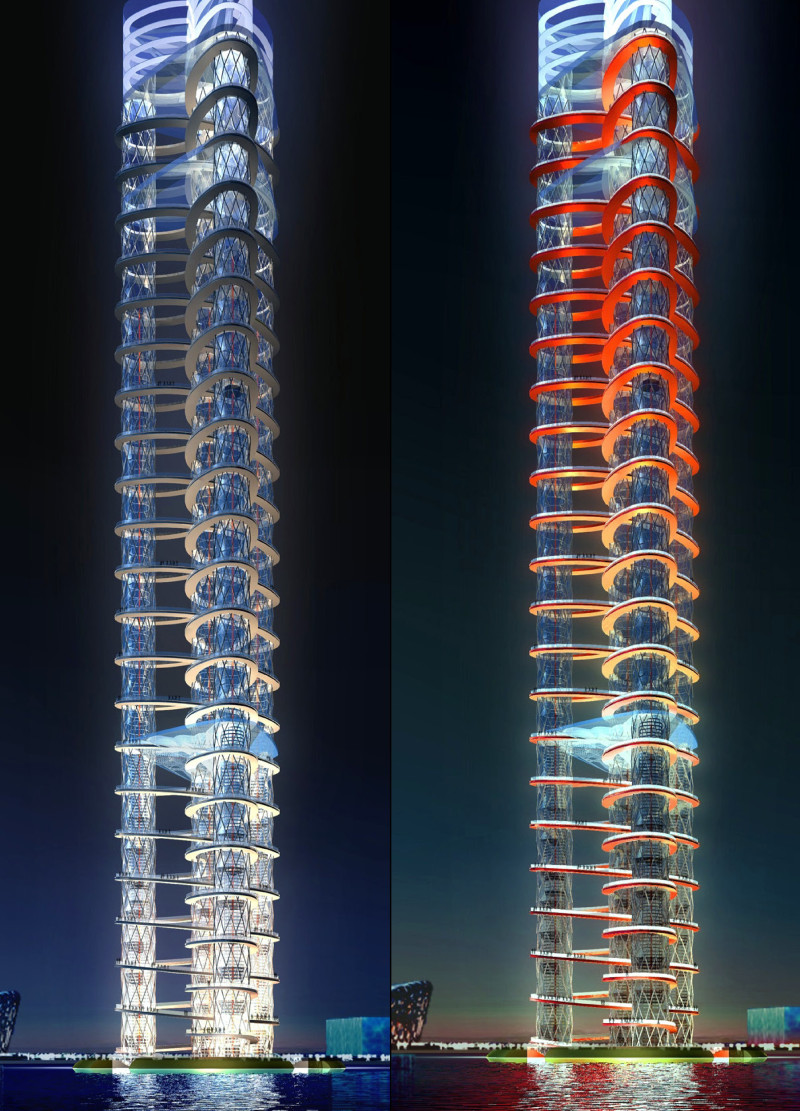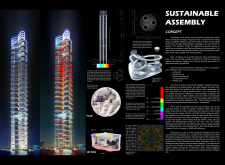5 key facts about this project
Sustainable Assembly is an architectural project designed to address the challenges of urban living in Beijing, China. This project reimagines the concept of high-rise buildings, blending residential, communal, and agricultural functions within a cohesive vertical environment. The overall design seeks to promote sustainability, social interaction, and efficient use of space, encapsulating a vision of future urban living.
The architectural design incorporates two twisting towers that optimize light and airflow while creating a visually engaging structure. The unique spiral form of the towers facilitates expansive views and enhances the aesthetic dialogue with the surrounding urban landscape. Each tower features distinct functional zones, including living spaces, gardens, and communal areas, allowing for a fluid integration of diverse activities within a single building.
Integrated Infrastructure and Community Focus
One of the defining aspects of Sustainable Assembly is its focus on community and sustainability through integrated infrastructure. The project features dedicated zones for urban agriculture, which employ vertical gardens to promote local food production. This design element encourages residents to participate in sustainable practices and cultivate their own food.
The structure is organized into functional areas: residential units, communal gathering spaces, and transportation hubs. Each zone is designed to enhance interaction among residents, fostering a sense of community. The architectural plans illustrate the deliberate arrangement of spaces that support social engagement, with shared facilities designed to accommodate events and activities that promote neighborhood interactions.
Use of Sustainable Materials and Technologies
The materials used in Sustainable Assembly are carefully selected to meet ecological standards while ensuring structural integrity. Glass facades facilitate natural light penetration, minimizing the reliance on artificial lighting. Steel provides the necessary strength for high-rise construction, while concrete serves as a durable material for internal walls. Renewable energy technologies, including solar panels and wind turbines, are integrated into the design, making the building energy-efficient and reducing its carbon footprint.
The unique architectural designs and the innovative use of materials highlight a commitment to sustainability that distinguishes this project from other developments. The careful consideration of the function of each element within the structure demonstrates a comprehensive understanding of the needs and benefits of urban living, creating a cohesive environment that prioritizes both comfort and ecological responsibility.
For further insights into the architectural plans, sections, and specific design elements of the Sustainable Assembly project, we encourage readers to explore the detailed presentation of this innovative design. Reviewing the architectural ideas and designs will provide a deeper understanding of the project's approach to modern urban living.




















































